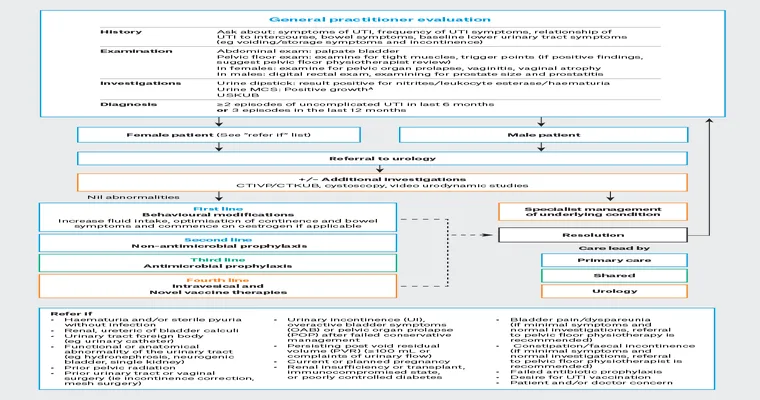Chronic UTIs, or "chronic urinary tract infections", can be a frustrating and painful experience for many individuals. If you find yourself suffering from recurring "UTIs", it is essential to understand how to manage and prevent them effectively. This article provides valuable advice on handling a chronic UTI, including prevention strategies, treatment options, and lifestyle changes that can help reduce the frequency of infections.
Understanding Chronic UTIs
A chronic UTI is defined as a urinary tract infection that recurs frequently, often within a few weeks of completing treatment. Individuals may experience symptoms such as a burning sensation during urination, frequent urges to urinate, and lower abdominal discomfort. Understanding the underlying causes of chronic UTIs is crucial for effective management. Factors such as anatomical abnormalities, hormonal changes, and underlying health conditions can contribute to recurrent infections.
Prevention Strategies
Preventing chronic UTIs requires a multifaceted approach. Here are some strategies to consider:
1. "Stay Hydrated": Drinking plenty of water helps dilute your urine and flush bacteria from your urinary tract. Aim for at least eight glasses of water a day.
2. "Practice Good Hygiene": Proper hygiene is essential in preventing UTIs. Always wipe from front to back after using the toilet and urinate before and after sexual intercourse.
3. "Urinate Regularly": Don’t hold in your urine for long periods. Regular urination can help clear bacteria from your urinary tract.
4. "Choose Appropriate Clothing": Wear loose-fitting clothing and cotton underwear to reduce moisture buildup, which can promote bacterial growth.
5. "Avoid Irritating Products": Certain feminine hygiene products, douches, and scented soaps can irritate the urinary tract. Opt for gentle, unscented products.
Treatment Options
If you are already experiencing chronic UTIs, consulting with a healthcare professional is essential. Treatment may include:
1. "Antibiotics": Your doctor may prescribe a longer course of antibiotics to help clear the infection. In some cases, a low-dose antibiotic may be recommended for an extended period to prevent recurrence.
2. "Probiotics": Incorporating "probiotics" into your diet can help restore the natural balance of bacteria in your gut and urinary tract, potentially reducing the risk of UTIs.
3. "Pain Relief": Over-the-counter pain relievers can help manage discomfort associated with UTIs. However, it is essential to follow your healthcare provider's recommendations.
Lifestyle Changes
In addition to prevention and treatment, certain lifestyle changes can significantly impact your overall urinary health:
1. "Dietary Adjustments": Eating a balanced diet rich in fruits, vegetables, and whole grains can support your immune system. Some studies suggest that cranberry juice may help prevent UTIs, though more research is needed.
2. "Regular Exercise": Engaging in regular physical activity can improve your immune function and overall health, making you less susceptible to infections.
3. "Stress Management": Chronic stress can weaken your immune system, making it harder for your body to fight off infections. Incorporate stress-reducing practices such as yoga, meditation, or deep breathing exercises into your routine.
When to Seek Medical Attention
If you experience frequent UTIs or symptoms that do not improve with treatment, it is crucial to seek medical attention. Your healthcare provider may recommend further testing to rule out underlying conditions that could be contributing to your recurrent infections.
Conclusion
Handling a chronic UTI can be challenging, but with the right strategies and support, you can reduce the frequency of infections and improve your quality of life. Focus on prevention, effective treatment, and necessary lifestyle changes to manage your condition. Always consult with a healthcare professional for personalized advice and treatment options tailored to your needs. Remember, you are not alone in this journey, and there are effective solutions available to help you regain control of your urinary health.


